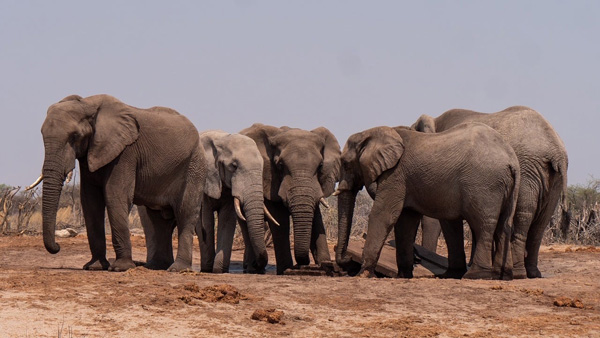Elephants in Zimbabwe are mass slaughtered to save the citizens suffering from hunger due to drought

[A photo shows a group of elephants in Zimbabwe, Photo Credit to Pixabay]
On September 16th, 2024, the Zimbabwean government authorized elephants to be mass slaughtered to save the citizens who were left in famine status due to the worst drought in decades.
It has been revealed that around half of the citizens in Zimbabwe were suffering acute hunger as crops were not produced due to severe drought.
The drought is caused by El Nino, a climate pattern that usually arises over the tropical Pacific Ocean, leading to very little rainfall to be made in the region.
Furthermore, the drought was also exacerbated by climate change as the temperature continues to rise due to global warming.
In an effort to alleviate the crisis, approximately 200 elephants were targeted to be killed to save half of the citizens, with Zimbabwe home to an estimated 84,000 elephants.
Tinashe Farawo, a spokesperson of the Zimbabwe Parks and Wildlife Authority claimed that they are also searching for other wild animals as an option to be killed if the drought continues on and strains the supply of food.
This action has drawn harsh criticism from the rights activists and conservationists, who argue that killing elephants was not acceptable as it was taking their lives away.
Farai Maguwu, the leader of the Zimbabwe-based advocacy group, stated that culling of elephants must be stopped since not only elephants have the right to live but also future generations should be able to see elephants in their natural habitat.
Thus, elephants should not be killed for consumption.
The previous case was mentioned: the first mass culling of elephants took place in 1988 to alleviate the conflict between elephants and humans.
Now, another culling has been adopted and this will lead to regular demand for bushmeat, which is not sustainable.
However, one environment minister Sithembiso Nyoni suggested an opposite viewpoint as he told the parliamentarians that, in fact, there are more elephants than needed in Zimbabwe.
The forest of Zimbabwe could not accommodate the current number of elephants, indicating how sacrificing the number of elephants is good for the environment as well.
Communities have begun exploring practical ways in which elephants can become a source of food to people.
Some have suggested that women can dry the elephant meat and package them to send it to all different communities.
By sending meat to all communities, citizens will be able to consume the necessary protein.
Nyoni further emphasized how it is important for the number of elephants to be reduced as it can pose another threat to human beings.
Nyoni explained that when there is an overpopulation of wildlife in the park, they will search for food and water to avoid their own hunger.
This will naturally lead elephants to move outside of the park and there will be a high chance for them to get in contact with humans and conflicts will arise.
If elephants take further resources away from humans, the sufferings of humans will become severe and the conflict between humans and elephants will arise.
Meanwhile, in Namibia, around 700 wild animals have been approved to be slaughtered for human consumption and this will alleviate the hunger suffered by the citizens.
Around 150 animals were revealed to be already slaughtered and this allowed 125,000 pounds of meat to be distributed to the community.
This will alleviate the hunger of people but many people question the sustainability of such action in the long term.

- Doyeon Kim / Grade 12
- Cornerstone Collegiate Academy of Seoul

![THE HERALD STUDENT REPORTERS [US]](/assets/images/logo_student_us.png)
![THE HERALD STUDENT REPORTERS [Canada]](/assets/images/logo_student_ca.png)
